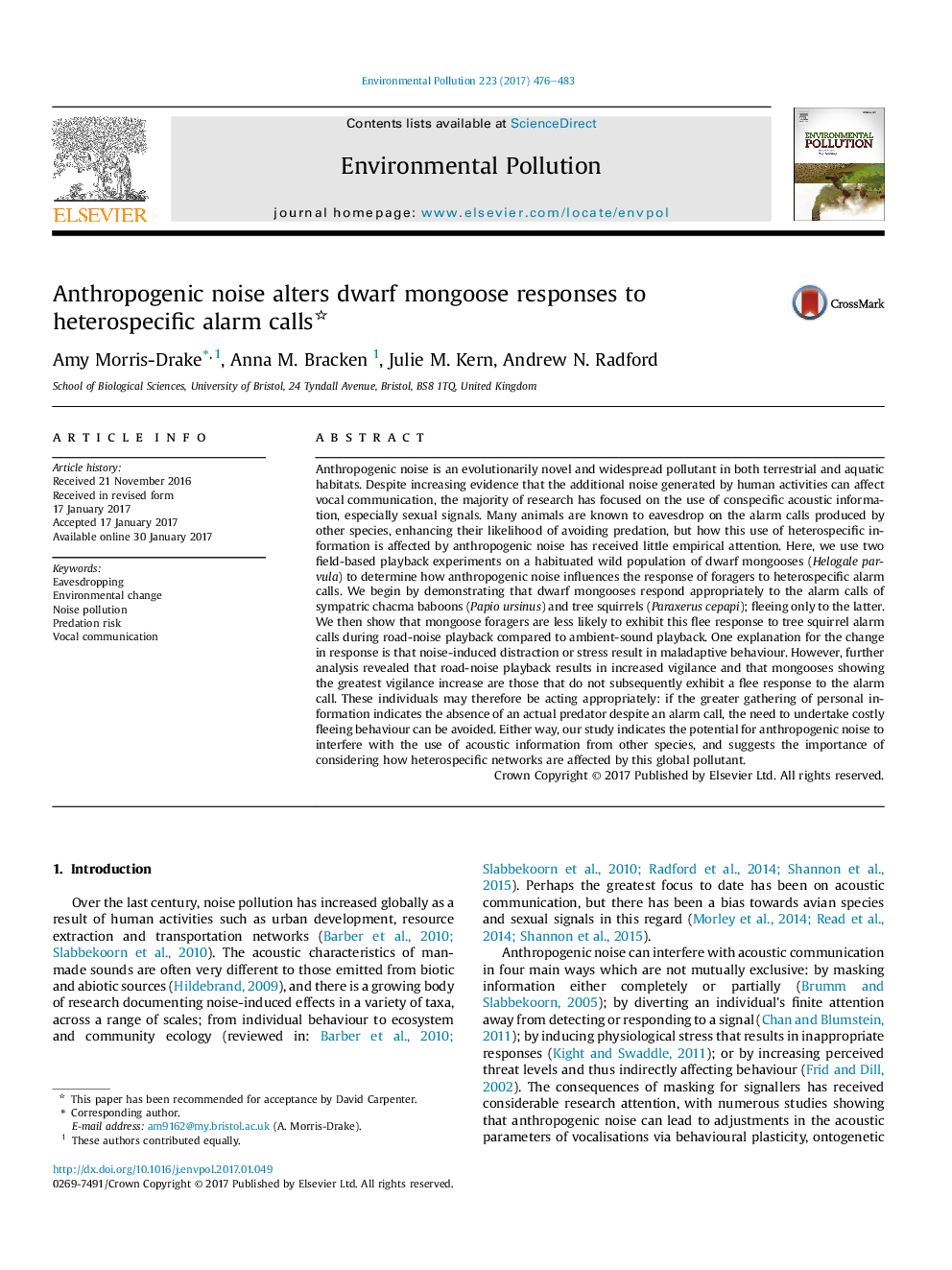| کد مقاله | کد نشریه | سال انتشار | مقاله انگلیسی | نسخه تمام متن |
|---|---|---|---|---|
| 5749328 | 1619150 | 2017 | 8 صفحه PDF | دانلود رایگان |
- Man-made noise alters response to heterospecific alarm calls in dwarf mongooses.
- Foragers less likely to flee when played back road noise compared to ambient noise.
- Lessened response to alarm calls could be due to distraction or stress.
- Alternatively, noise-induced vigilance increase could result in optimum response.
Anthropogenic noise is an evolutionarily novel and widespread pollutant in both terrestrial and aquatic habitats. Despite increasing evidence that the additional noise generated by human activities can affect vocal communication, the majority of research has focused on the use of conspecific acoustic information, especially sexual signals. Many animals are known to eavesdrop on the alarm calls produced by other species, enhancing their likelihood of avoiding predation, but how this use of heterospecific information is affected by anthropogenic noise has received little empirical attention. Here, we use two field-based playback experiments on a habituated wild population of dwarf mongooses (Helogale parvula) to determine how anthropogenic noise influences the response of foragers to heterospecific alarm calls. We begin by demonstrating that dwarf mongooses respond appropriately to the alarm calls of sympatric chacma baboons (Papio ursinus) and tree squirrels (Paraxerus cepapi); fleeing only to the latter. We then show that mongoose foragers are less likely to exhibit this flee response to tree squirrel alarm calls during road-noise playback compared to ambient-sound playback. One explanation for the change in response is that noise-induced distraction or stress result in maladaptive behaviour. However, further analysis revealed that road-noise playback results in increased vigilance and that mongooses showing the greatest vigilance increase are those that do not subsequently exhibit a flee response to the alarm call. These individuals may therefore be acting appropriately: if the greater gathering of personal information indicates the absence of an actual predator despite an alarm call, the need to undertake costly fleeing behaviour can be avoided. Either way, our study indicates the potential for anthropogenic noise to interfere with the use of acoustic information from other species, and suggests the importance of considering how heterospecific networks are affected by this global pollutant.
443
Journal: Environmental Pollution - Volume 223, April 2017, Pages 476-483
